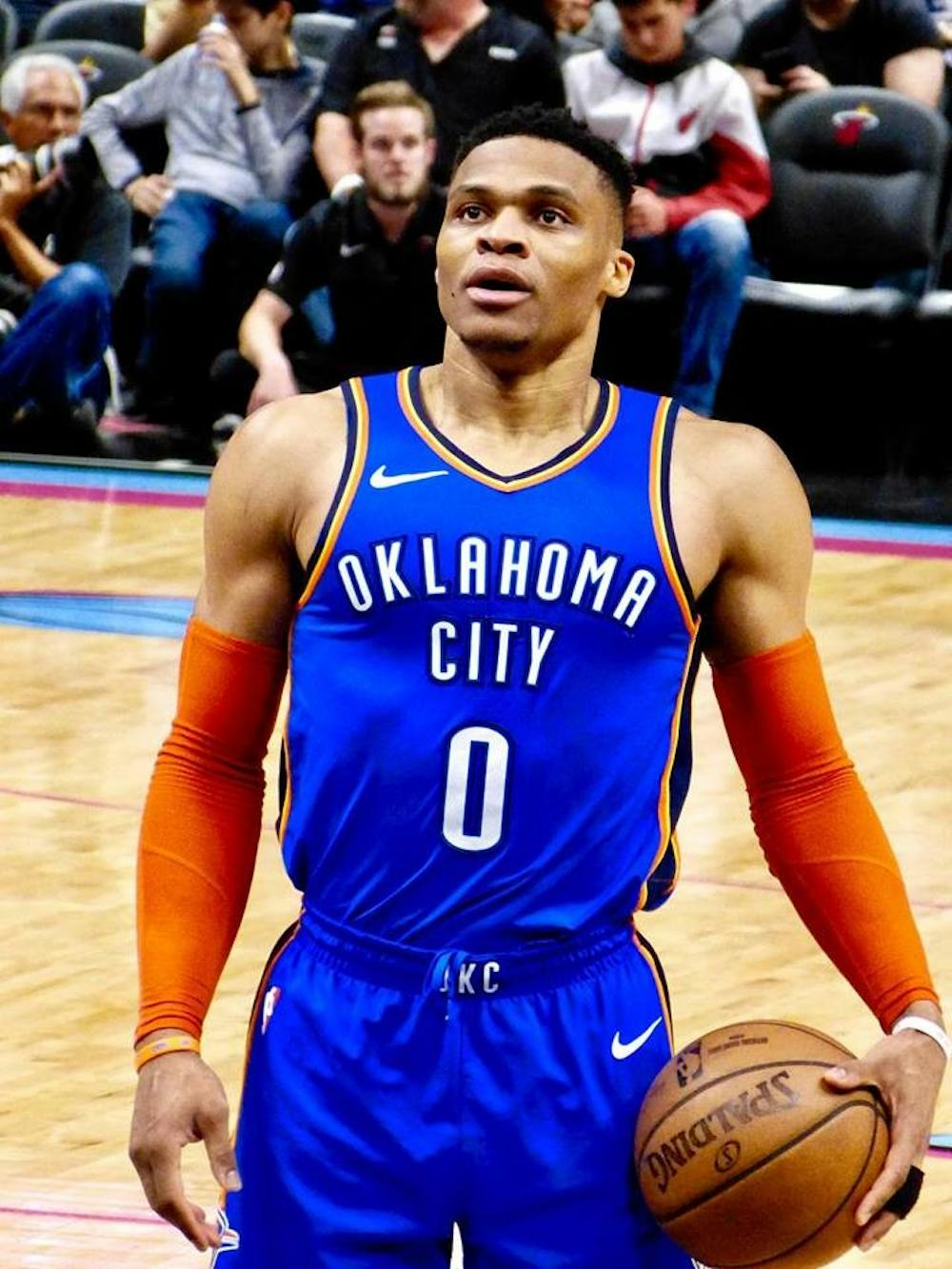About a month ago, Oklahoma City Thunder star Russell Westbrook was told by two Utah Jazz fans to “get down on your knees like you used to.” A few weeks ago, English soccer players Danny Rose, and Callum Hudson-Odoi were subject to racist abuse from Montenegro fans while playing for England. And last week, Italian striker Moise Kean faced racism from opposing fans while playing for Juventus versus Cagliari.
Racism in sports is nothing new. As long as racism exists in the larger society, it will find its way to sports arenas. But that doesn’t mean it should be viewed as normal. Sports teams and leagues must do more to root out racism in their fan bases by implementing harsher punishments for fans and teams.
A popular argument to devalue the racism black players face is that it is just part of the game. Players are supposed to take racism like any other heckling from the crowd: ignore it and get on with the game.
When Kean refused to do so, instead standing arms outstretched in front of the opposing team’s fans after scoring a goal, both his captain and manager, who are white, criticized him for provoking racist abuse from the fans. Westbrook also refused to be silent, and he was fined $25,000 for swearing and threatening violence against the couple who abused him (the two fans were later banned from Jazz games for life).
While sports leagues certainly shouldn’t condone threats of violence towards fans, the results of these incidents only reinforce the notion that black athletes should passively accept abuse and pretend it doesn’t affect them.
The reality, however, is that racism has harmful psychological effects that shouldn’t be swept under the rug. Rose, who has faced racist abuse throughout his career, recently said he can’t wait to retire from soccer to escape the racist attacks on him. Another English player, Raheem Sterling, has spoken out against the racism he’s endured from both fans and the English media.
It’s clear that athletes of color are fed up with having to silently accept continual abuse that shows no signs of going away, despite campaigns dedicated to combating racism. It’s time for the leagues to acknowledge these players’ demands and take more drastic action to root out racism.
Athletes have long complained that leagues haven’t done enough. Liverpool player Rhian Brewster’s story highlights this problem. At just 19 years old, he has already witnessed seven incidents of racial abuse directed at him or his teammates. Though he has lodged multiple complaints of racism UEFA, a soccer governing body, has taken little to no action to punish the offenders.
Sterling recently suggested forcing teams to play in empty stadiums as punishment. UEFA has used this type of punishment in the past. For example in 2014, CSKA Moscow fans were banned from attending Champions League games after several racist and violent incidents. However, this type of punishment is only used sparingly in European soccer and almost never in American sports. Implementing a rule that mandates empty stadium playing for racist abuse would act as an extremely strong deterrent against racist fans.
Leagues should also explore docking teams of wins or points as a consequence for racist behavior by implementing a similar system in which clear deductions are set for racist abuse. It may seem unfair to punish whole fanbases and teams for the actions of a few individuals, but isn’t it more unfair to allow athletes to face consistent psychological harm — so much so that they can no longer find joy in the sport to which they’ve dedicated their lives?
In addition to acting as a deterrent, taking such decisive measures would encourage teams to educate their fanbases about the pain their racist attitudes have caused.
I can’t guarantee that harsher punishments will eradicate the racism that pervades sports arenas today. But given the fact that reports of abuse in soccer have increased by 11 percent this past year, for example, it is clear that the existing system isn’t working. Decisive, new strategies must be explored if sports leagues really want to address and eliminate racist abuse of their athletes.

Sports often reflect society, but they can also spur change. By taking a stronger stand against racism, sports can change the way we react to racism in everyday life. It’s time to stop accepting racism as the status quo and protect players by proactively fighting against racial hatred.
Shannon Chaffers is a first-year from Wellesley, MA. She can be reached at sec3@princeton.edu.








